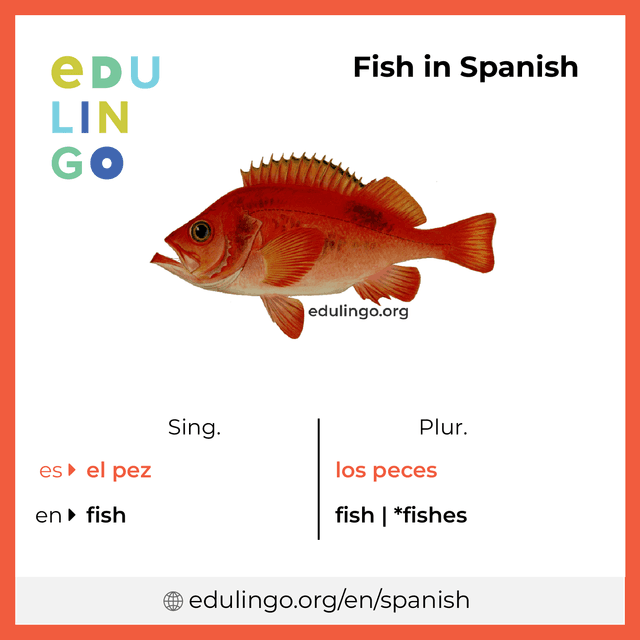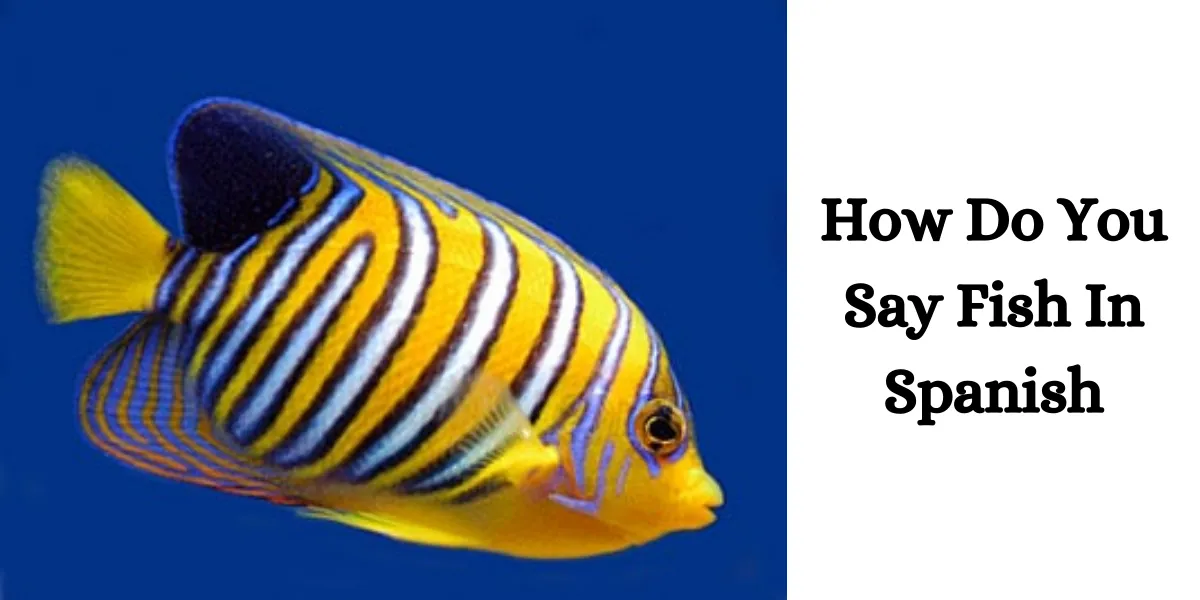Spanish Idioms & Fish Vocabulary: Dive In & Learn!
Do you want to dive into the vibrant world of Spanish and uncover the secrets hidden within its aquatic vocabulary? Learning about "fish" in Spanish opens a portal to a richer understanding of the language and its cultural nuances.
Spanish, a language brimming with vivid expressions and cultural intricacies, offers a fascinating realm for those eager to broaden their linguistic horizons. This exploration into the vocabulary of fish in Spanish isn't merely about learning words; it's about embracing a culture, understanding its humor, and navigating its daily conversations with flair. Idioms, slang, and everyday phrases add a unique flavor to the language, making it both enjoyable and practical to learn.
Navigating the waters of Spanish can be particularly rewarding for seafood enthusiasts and language learners. Mastering the names of fish and related terms provides a practical and intriguing way to deepen your understanding of the language. Spanish speakers often use different terms depending on whether they're referring to a live fish or a cooked one.
Heres a table showcasing key phrases and terms related to fish in Spanish, along with their English translations. This provides a clear and concise way to grasp the fundamental vocabulary:
| Spanish Term | English Translation | Context |
|---|---|---|
| El pez | The fish (alive) | Referring to a live fish. |
| El pescado | The fish (dead/cooked) | Referring to fish as food. |
| Pescar | To fish | The act of fishing. |
| Rebuscar | To search for | Can be used in the context of finding fish. |
| Tratar de conseguir | To try to get | Used when attempting to obtain fish. |
| Pescadera | Fish market | Place to buy fish. |
| Filete de pescado | Fish fillet | A specific cut of fish. |
Beyond the basic vocabulary, the Spanish language weaves in colorful idioms and slang that add depth to conversations. For instance, "como pez en el agua" translates to "like a fish in water," signifying comfort and ease. This idiom exemplifies how Spanish expressions reflect the culture, history, and traditions of its people. Similarly, the use of slang enriches daily interactions, especially in regions like Cuba and Mexico, offering unique ways to express oneself.
Consider the phrase "Mamaguevo, digo glo glo glo," originating from a viral YouTube video. This phrase, though slang, demonstrates how Spanish slang evolves and permeates pop culture. The origins of such phrases, often rooted in specific regions and dialects, add layers of cultural richness to the language.
In everyday use, understanding the context of fish in Spanish is vital. For instance, when ordering at a restaurant, you might say, "Voy a pedir un filete de pescado" (I will order a fish fillet). The word "pescado" is used here because you are referring to the prepared food item. In a different context, if you are discussing keeping a fish as a pet, you would use "pez," as in "Compr un pez, y ya lo puse en la pecera" (I bought a fish, and I already put it in the fish tank).
Fishing itself is a timeless activity, connecting people worldwide. Whether casting a line in a serene lake or navigating ocean waves, the act of fishing transcends language barriers. Learning to speak about fishing in Spanish opens up opportunities to connect with Spanish-speaking communities through this shared passion.
Moreover, understanding regional slang is crucial for truly integrating into a Spanish-speaking environment. Cuba, for example, has its own unique expressions that can make a local's conversation more engaging. From greetings to funny idioms, slang words help build a feeling of community.
For those interested in the culinary arts, understanding fish vocabulary is essential. Spanish-speaking countries boast rich seafood traditions. The word "carne de" is commonly used with meat, differentiating the type of meat being discussed, like "carne de res" (beef). Learning these specific terms avoids confusion between food terms and the names of animals.
To illustrate the practical application, consider this: If someone is allergic to shrimp, as in the example, "Tim es alrgico al camarn," or "Tim is allergic to shrimp," understanding the Spanish words helps in handling food-related situations. The expression, "It smells like rotten fish!" is another common phrase that requires understanding these words.
To provide a comprehensive overview, lets explore common ways to say "fish" in Spanish:
- Pez: Refers to a live fish.
- Pescado: Refers to fish as a food item or in general.
- Pescar: The verb to fish.
The pronunciation of Spanish might seem easy at first glance, but it differs significantly from English. This makes it even more critical to listen to the pronunciations and practice the words. Fast and reliable language certification can also give you a solid base and help you gain fluency.
Learning the names of fish also goes beyond food. The Spanish vocabulary encompasses a wide array of terms that describe the various aspects of fish and fishing. The word "faenar," for example, is used in fishing terminology, meaning "to fish" or "to work."
The world of Spanish slang further enriches language mastery. For example, in many Spanish-speaking regions, there are slang expressions with particular nuances that can vary widely by region. Learning these local expressions provides a deeper connection with local culture and aids better communication.
In summary, learning about "fish" in Spanish is much more than memorizing vocabulary. Its an immersive cultural exploration that aids in building effective communication skills and provides a richer understanding of the Spanish-speaking world.


![Learn These 20 Types of Fish in Spanish [+ More Vocab]](https://www.spanish.academy/wp-content/uploads/2022/04/Learn-These-20-Types-of-Fish-in-Spanish-more-vocab-Infographics-2-compressed-2048x2048.jpg)